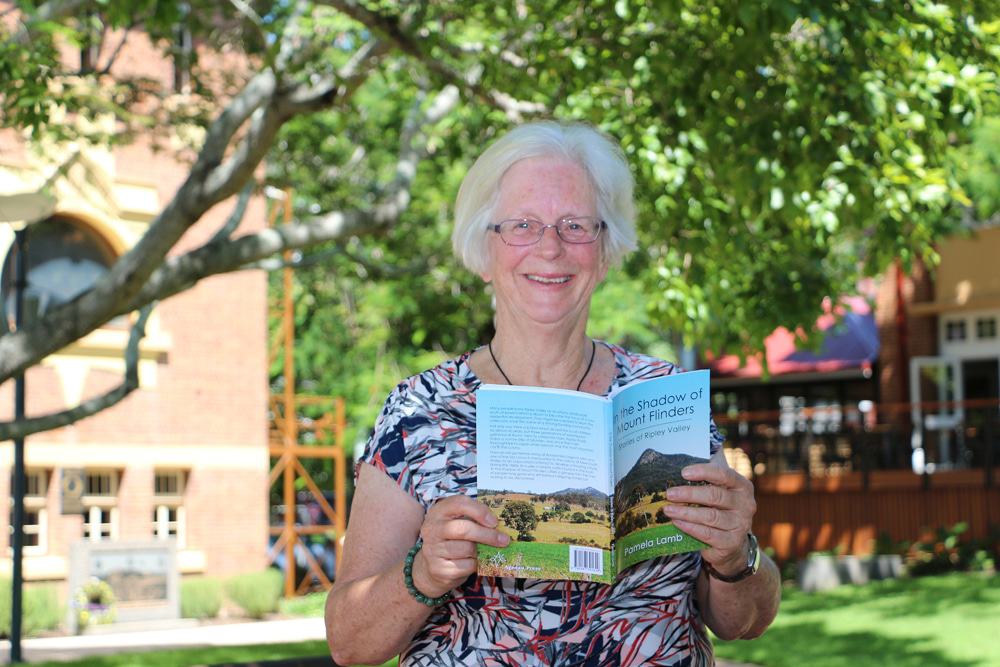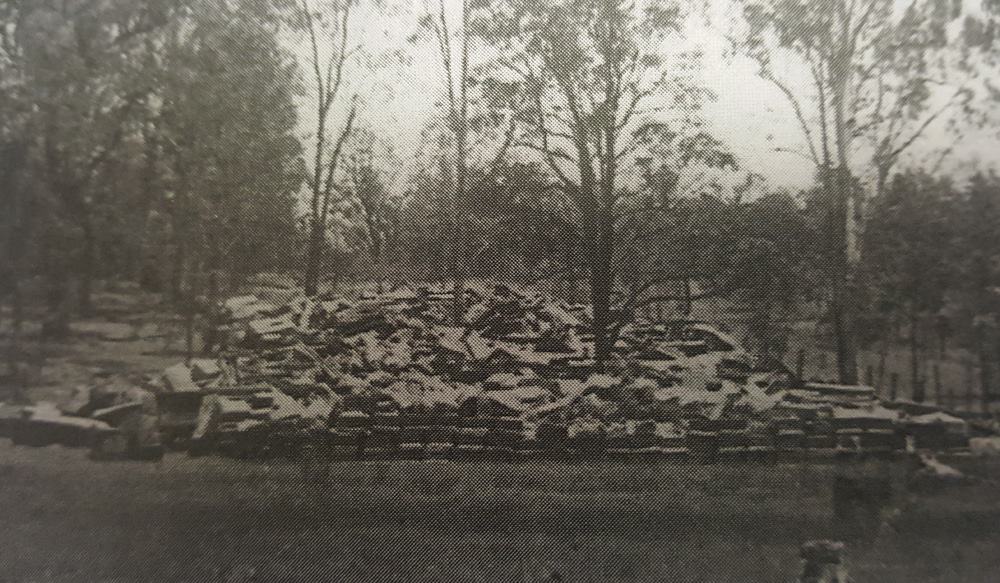
In the shadows of Mt Flinders, the Ripley Valley is today a hive of activity as a major new community takes shape. More than 100,000 people will eventually call the area home. However, it may surprise some to learn this is not the first time a thriving community has emerged in the valley. Ipswich First spoke with author Pamela Lamb to hear some of the lesser known tales of Ripley Valley.
Few people could claim to have as well-rounded an understanding of the history of Ripley Valley as Bellbird Park author Pamela Lamb.
However, that was not always the case. There was a time when all Ms Lamb knew about it was that a friend’s ancestors had lived there and her son once camped on a property there while in scouts.
Ms Lamb is the author of In the Shadows of Mount Flinders: Stories of Ripley Valley.
She wrote the book after being asked by her former boss at UQ’s Ipswich research centre to look into the history of the valley.
When she did, Ms Lamb found it was a fascinating place rich in stories.
“It is an absolutely beautiful place. People making use of the valley is not new, the development we see happening now is really just the next phase of people using the valley,” she said.
Far from an empty landscape before today’s current development boom, from the mid-1800s the valley developed into a thriving farming community and even had its own school until the 1930s.
“The soil is terrible and there was really only one water source but despite that people in the valley still grazed cattle, and were also timber getters,” she said.
Eventually, most in the isolated community moved closer to Ipswich in search of employment.
Ms Lamb, whose passion for history can be traced back to her childhood in England, said she hoped her book would help current and future generations better understand the area’s history.
“History was all around us growing up, Chester was a Roman town and so there are Roman items everywhere, you can’t miss it,” she said.
“I think people have that sense of wanting to know where they came from and who helped to shape the community where they live.”
Here are just a few of the tales Ms Lamb uncovered:
Unlikely neighbours: the son of a lord and a convict
Ripley Valley may well be able to lay claim to one of the earliest neighbourhood disputes in the Ipswich region. In the 1850s and 1860s two very different men – James Ivory and Owen Daly – found themselves living side by side near Bundamba Lagoon. Ivory was the son of a Scottish lord and Daly an Irish convict. They did not get along.
The pair’s dislike for one another became very public in 1860 when Daly accused Ivory of having fired at a group of Aborigines that Daly had allowed to camp on his land. As a result of the incident, a year later Daly was called as a witness before the Queensland Legislative Assembly Select Committee on the Native Police Force and the Condition of the Aborigines Generally. The committee asked Daly if he was on good terms with his neighbour to which he replied “No, I never went to Mr Ivory’s since he came there”.
Although living beside one another was uncomfortable for both men, they did have one thing in common. Both had the necessary physical and mental strength to make a go of life in a remote valley on the far side of the world from where they started their very different lives.

Coffins in the bush
You can only imagine the surprise workers from Moreton Shire Council got when in 1986 while carrying out a sewerage project in the Ripley township several coffins were unearthed in Clark Street. As it turns out, it was not a cemetery but rather a dumping ground for coffins which previously kept the bodies of US Army soldiers.
During World War II, part of Ipswich Cemetery was handed over to the US military. American servicemen from Brisbane, Darwin and Townsville along with men reinterred from Port Moresby were buried there. When a decision was made in 1947 to repatriate the dead to American soil, the graves were dug up and coffins dumped in the Ripley Valley. They remain there to this day.
The fight to stop industrial development
In the mid-1980s a stir was caused in and beyond the valley when it was revealed the State Government of the day wanted to develop a noxious or heavy industry industrial estate on land it had bought from Kern Corporation. The land was on the eastern side of Ripley Road between Flinders View and existing residents’ homes. After years of strong opposition from residents, the site never went ahead.
What the future holds for Ripley Valley
According to the State Government’s vision for the Ripley Valley, in 2030 it is a rich and festive community which has developed as a series of distinctive neighbourhoods and smaller villages within the many and varied valley precincts, surrounded both close and afar by hills and views of the iconic Flinders Peak.
Vegetated hills, valleys, lakes, open space linkages and trails are a constant reminder of the connection and relationship this community has with its valley home. This natural setting is celebrated by the community in every aspect of design, form and function.
Residents have easy access and connections to employment opportunities both locally and within the wider Ipswich district. Ripley Valley is the heart of one of the state’s employment and economic growth regions, with residents benefiting from employment prospects in neighbouring areas of Swanbank, Ebenezer and Amberley. An integrated public transport system operates within and beyond the Valley to provide convenient travel alternatives.
A real ‘sense of place’ is instilled in the valley, generating community pride in their active involvement in a safe, friendly and green living environment.
The Ripley town centre is stimulating and inspired by its marketplace style and is easily accessible to the community it services. The valley is complimented by a network of smaller neighbourhood mixed use villages offering meeting places, cultural experiences, shopping, recreation, and state of the art transport connections both near and afar.
The Ripley Valley has embraced the principles of sustainability and is a model for others to follow – acknowledged both in Australia and overseas.
Learn more about plans for Ripley Valley here.
- Copies of Ms Lamb’s book are available for purchase from Ipswich Visitor Information Centre at Queens Park or by contacting Ms Lamb on 0404 058 132 or [email protected]
Know more about Ipswich


5